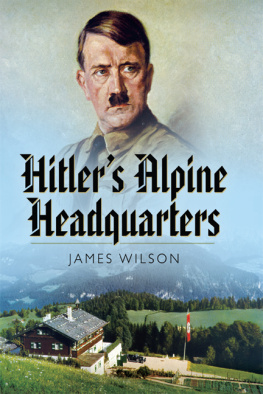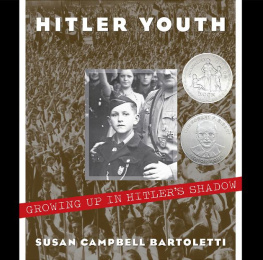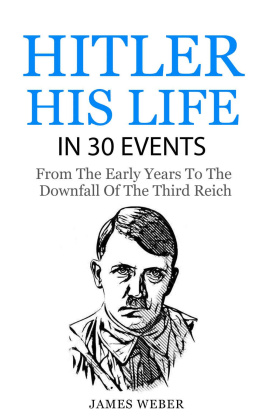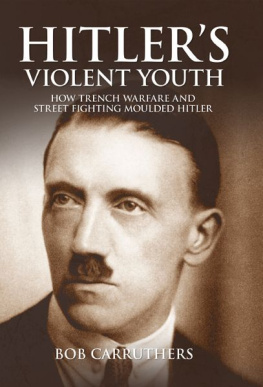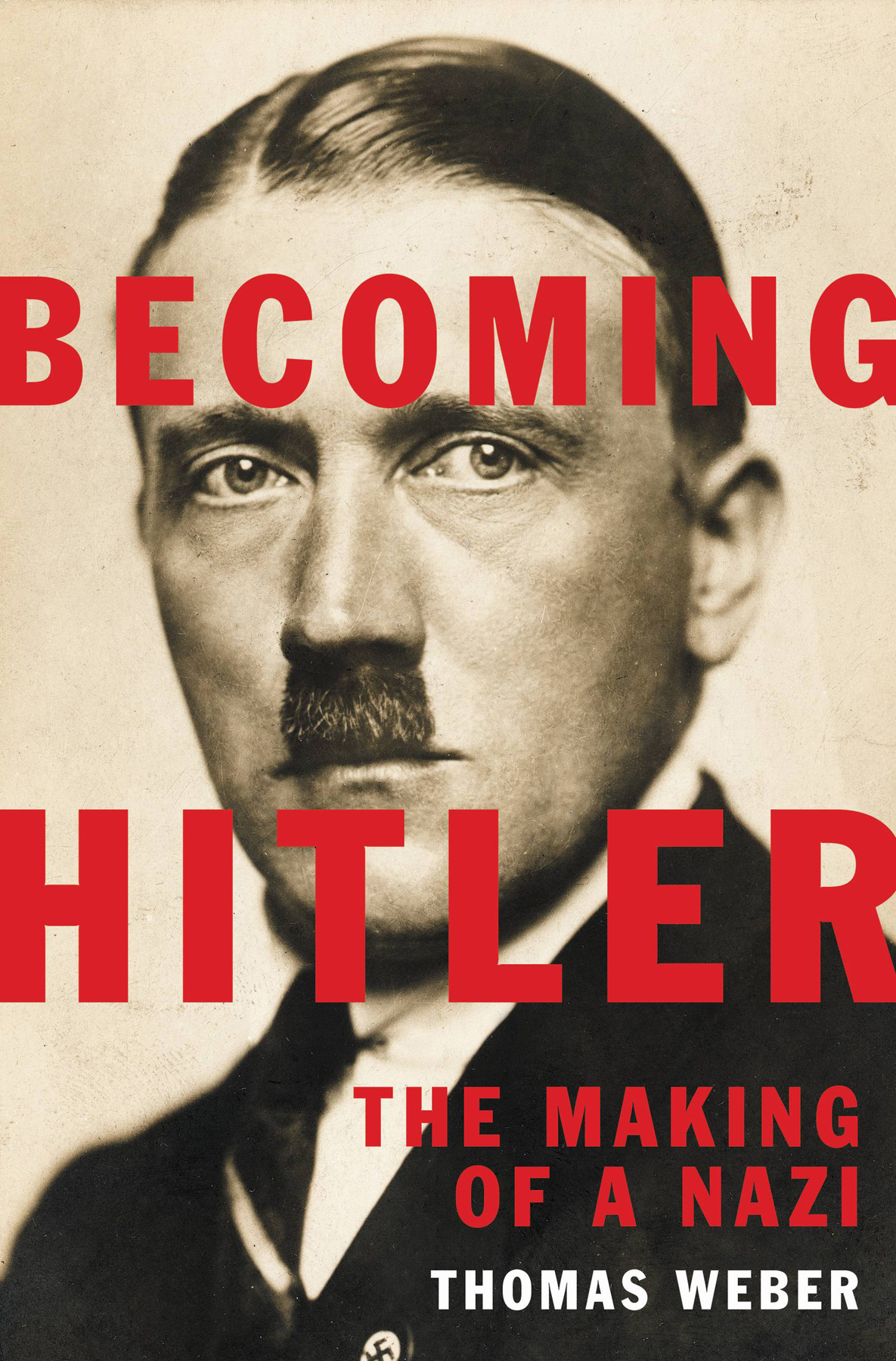Copyright 2017 by Thomas Weber.
Hachette Book Group supports the right to free expression and the value of copyright. The purpose of copyright is to encourage writers and artists to produce the creative works that enrich our culture.
The scanning, uploading, and distribution of this book without permission is a theft of the authors intellectual property. If you would like permission to use material from the book (other than for review purposes), please contact permissions@hbgusa.com. Thank you for your support of the authors rights.
Basic Books
Hachette Book Group
1290 Avenue of the Americas, New York, NY 10104
www.basicbooks.com
First Edition: July 2017
Published by Basic Books, an imprint of Perseus Books, LLC, a subsidiary of Hachette Book Group, Inc.
The Hachette Speakers Bureau provides a wide range of authors for speaking events. To find out more, go to www.hachettespeakersbureau.com or call (866) 376-6591.
The publisher is not responsible for websites (or their content) that are not owned by the publisher.
Library of Congress Cataloging-in-Publication Data
Names: Weber, Thomas, 1974- author.
Title: Becoming Hitler : the making of a Nazi / Thomas Weber.
Description: New York : Basic Books, 2017. | Includes bibliographical
references and index.
Identifiers: LCCN 2017022799 (print) | LCCN 2017027123 (ebook) | ISBN 9780465096626 (ebook) | ISBN 9780465032686 (hardcover)
Subjects: LCSH: Hitler, Adolf, 1889-1945. | Hitler, Adolf, 1889-1945Homes and hauntsGermanyMunich. | Hitler, Adolf, 1889-1945Psychology. |
Nazis--GermanyBiography. | Right-wing extremistsGermanyBiography. | Heads of stateGermany--Biography. | National socialismHistory. |
GermanyPolitics and government1918-1933. | BISAC: BIOGRAPHY & AUTOBIOGRAPHY / Presidents & Heads of State. | BIOGRAPHY & AUTOBIOGRAPHY / Historical. | BIOGRAPHY & AUTOBIOGRAPHY / Political. | HISTORY / Europe / Germany.
Classification: LCC DD247.H5 (ebook) | LCC DD247.H5 W366 2017 (print) | DDC
943.086092 [B]dc23
LC record available at https://lccn.loc.gov/2017022799
E3-20170926-JV-NF
This is the most important book on Hitler and National Socialism since Ian Kershaws monumental biography. It is amazing how much new information and documentation Thomas Weber has used to show precisely when, how, and why Hitlers world view was shaped, and precisely where the intellectual, emotional, and social origins of genocide and of the Holocaust lay. He has precisely recreated the world of Munich in the early 1920s, to show how a burning hostility to internationalismwe would say today globalismemerged.
Harold James, professor of history, Woodrow Wilson School of Public & International Affairs, Princeton University
In his brilliant Becoming Hitler, Thomas Weber offers an original, well-documented, and enthralling account of the how and why of Hitlers rapid metamorphosis from zero to self-defined hero in the where of 1919 Municha city ripped apart by a short civil war and its vengeful aftermath. Becoming Hitler makes us rethink everything we thought we knew about the emergence of Hitler as a political leader.
Robert Jan van Pelt, University of Waterloo, Canada
for Sarah
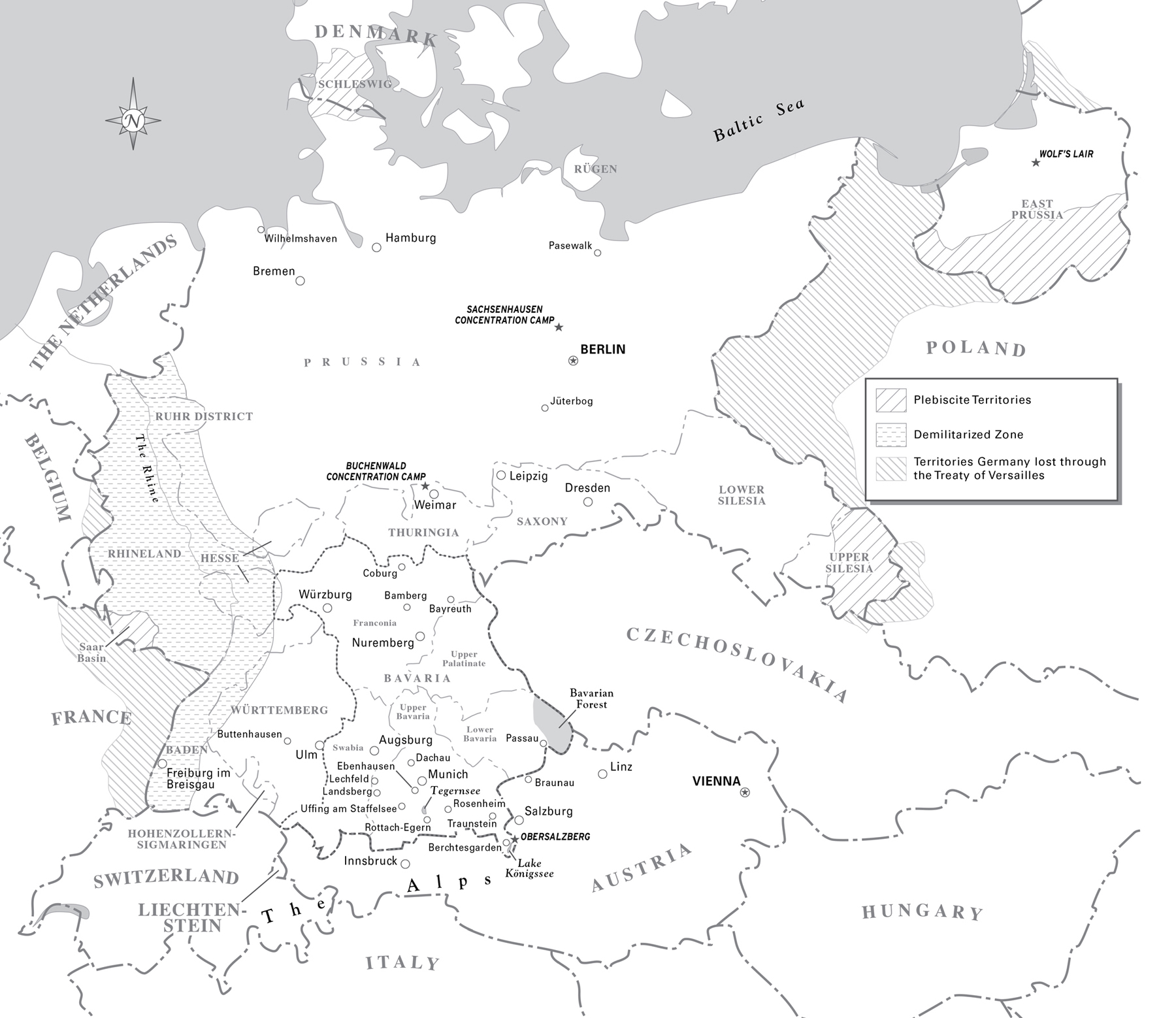
Germany after the First World War
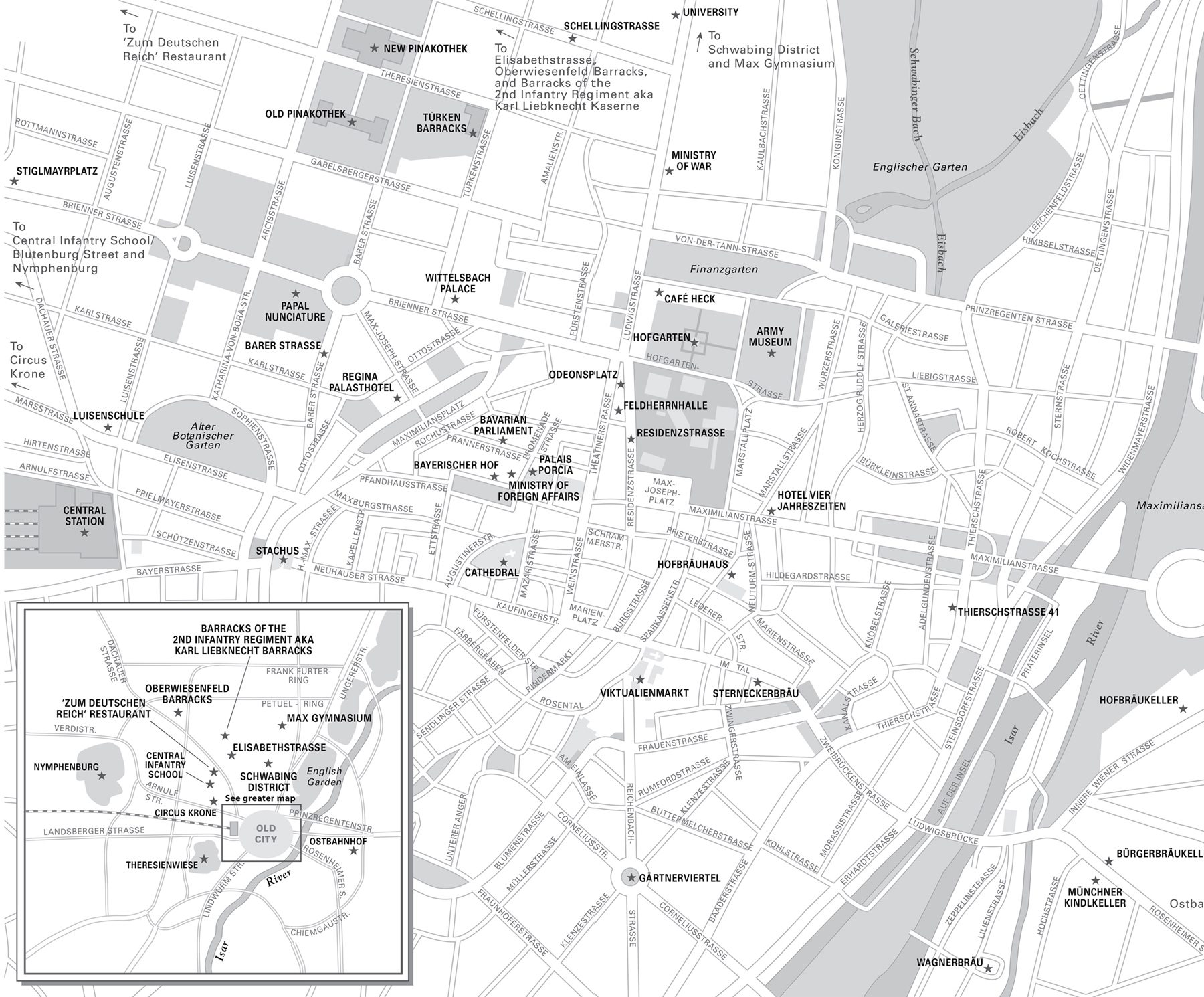
Munich after the First World War
December 14, 1918, was National Socialisms greatest day yet. On that mild day, the first candidate for a National Socialist party was elected to a national parliament. After all votes had been counted, it emerged that 51.6 percent of the electorate in the working-class constituency of Silvertown, on the Essex side of the border between London and Essex, had voted for John Joseph Jack Jones of the National Socialist Party to represent them in the British House of Commons.
National Socialism was the offspring of two great nineteenth-century political ideas. Its father, nationalism, was the emancipatory movement aiming at transforming dynastic states into nation states, born in the age of the Enlightenment and toppling dynastic empires and kingdoms in the century and a half following the French Revolution. Its mother, socialism, had been born when industrialization took hold in Europe and an impoverished working class was created in the process. Its mother had come of age in the wake of the great crisis of liberalism, which had been triggered by the crash of the Vienna Stock Exchange in 1873.
In its infancy, National Socialism had been most successful wherever the economic volatility of the late nineteenth and early twentieth centuries had met multiethnic dynastic empires in crisis. It was thus unsurprising that the first National Socialist parties were formed in the Austro-Hungarian Empire. The Czech National Social Party was formed in 1898. Then, in 1903, the German Workers Party was established in Bohemia. It renamed itself the German National Socialist Workers Party in May 1918, when it split into two branches, one based in Austria and the other in the Sudetenland, the German-speaking territories of Bohemia. Some Zionists, too, spoke of their Jewish national-social dreams.
Germany, by contrast, was in the history of National Socialism a belated nation. It took six years after Jack Joness election to the lower chamber of the British Parliament for the first National Socialist politicians in Germany (then under the banner of the National Socialist Freedom Party) to be voted into the Reichstag. And not until 1928, ten years after Britain had its first National Socialist member of Parliament, were candidates from a party headed by Adolf Hitler voted into a national parliament.
When the National Socialist Party was founded in Britain in 1916, Adolf Hitler, the would-be leader of Germanys National Socialist Party, was still an awkward loner with fluctuating political convictions. This book tells the story of his metamorphosis into a charismatic leader and conniving political operator with firm National Socialist ideas and extremist political and anti-Semitic convictions. His transformation did not begin until 1919, and was only completed in the mid-1920s. It took place in Munich, to which Hitler had moved in 1913: a city that, compared with Silvertown and many cities in the Habsburg Empire, had remained politically stable until the end of the First World War.
While this book focuses on the years between 1918 and the mid-1920s, crucial years in the life of Hitler, it likewise tells the story of National Socialisms belated success in Germany. This is also the story of the political transformation of Munich, Bavarias capital, in which Hitler rose to prominencea city that only a few years earlier would have been considered one of the most unlikely places for a sudden emergence and triumph of demagoguery and political turmoil.

When I first became a historian, I never would have imagined that I would write at any length about Adolf Hitler. As a graduate student, I felt greatly honored, and I still do, to work in a very minor rolecompiling the books bibliographyon the first volume of Ian Kershaws magisterial Hitler biography. Yet after the many great works of scholarship about Hitler that had been published between the 1930s and the publication of Kershaws biography in the late 1990s, I found it difficult to imagine that anything worthwhile and new was left to say about the leader of the Third Reich. As a German raised in the 1970s and 1980s, undoubtedly I also was driven, at least subconsciously, by a concern that writing about Hitler may appear as apologetic. In other words, that it would constitute a return to the early 1950s, when many Germans tried to blame the many crimes of the Third Reich solely on Hitler and a small number of people around him.









